Confederate Truths: Documents of the Confederate & Neo-Confederate Tradition from 1787 to the Present.
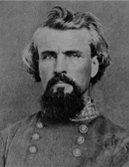

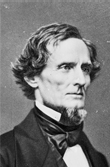
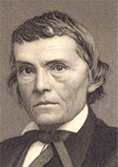

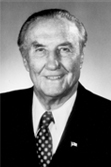
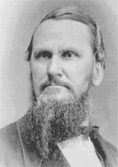
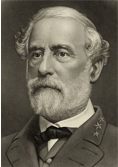
"The Inferiority of the Negro" as explained in the "Confederate Veteran"
Confederate Veteran?, Vol. 23 No. 3, March 1915, pp. 105. This is a rebuttal to criticism of white supremacy in publication called Life. Notice the Uncle Remus story that follows the article ridiculing the idea of African Americans going to school. It was a space filler to end the page. It also ridicules African Americans by having their speech written in dialect. The Confederate Veteran was the official publication of the United Confederate Veterans, United Daughters of the Confederacy, Confederated Southern Memorial Association, and the Sons of Confederate Veterans.
Does African American Dr. Wilkins remind you of any African Americans you know of today?
THE INFERIORITY OF THE NEGRO.
Our friends down South, being sure that the negroes are inferior, deny them advantages and provide inferior schools for negro children in order that they will continue to be inferior and thus prove the correctness of the contention of the scientists and sentimentalists that the negro is inferior. After all, there is nothing quite so satisfying as the feeling that you have got things fixed so that you will always have an inferior race in your midst—Life.
The best answer to this is from the negro himself, who realizes that the South has done for him what the North neglected to do when he had his freedom thrust upon him. An address by a negro leader in the South on Emancipation Day sets forth some very pertinent reasons why the negro has preferred living as an inferior in the South rather than to seek the exalted (?) station which the North was so eager to give him. This address, by one Dr. Wilkins, at Little Rock, Ark, has been going the rounds of the country. Among other things, he said:
"I say here now, once for all, if we are to celebrate this occasion (Emancipation Day) we cannot in any conscience forget those who, in anguish and pain, still held out to us a hand without which we must have perished from the earth, our freedom a travesty, and Lincoln's proclamation would have had no place except as an epitaph of what might have been.
"Let us, then, celebrate this day in memory of their helpful friendship and in gratitude that we had the good sense to prove our worthiness of their benefactions by not resorting to torch or anarchy, and with a blush of shame that anywhere in our beloved Southland any negro's pretended friends supposed that Lincoln's proclamation ever contemplated the immediate elevation of the ex-slave to place and power that meant not only the humiliation of the negro's best friends but the destruction of that mutual reliance which was the most important element in the remaking of this Southland.
"Does any one believe that Lincoln would ever have signed a paper in which he could have foreseen such a saturnalia of wickedness as reigned over the South during the days of Reconstruction, a period of our history that every man who remembers it would gladly blot out if he could? No; it would have been better for that great heart to be still in that noble breast than know that an instrument of his making could be so construed as to produce such a condition in the land of his birth. God was merciful in taking him from such a scene. He never intended it. No! Not that man, whose tender heart held no malice. And, like the Master of Galilee, he taught love of one's enemies.
"I remember well, as if it were but yesterday, when old mistress came into the kitchen and told my mother: 'Aunt Jane, you are free, as free as I am. And you can go.' She wore a large gray shawl, and as she turned to go I saw tears on her pale cheeks. My mother caught hold of her shawl and, with streaming eyes, said: 'Miss Jennie, where shall I go? What shall I do? I have nine children, and I know no one but you. Why must I leave you?' We were all crying now. 'O no, Aunt Jane,' she said; ‘you need go nowhere. You can stay right here if you wish, and as long as I have a crust of bread you and your children shall eat. I will pay you what wages I can. And so long as I live and you stay, if you suffer I will suffer too.'
"We stayed, and she did suffer, much more than we. This scene was at that moment being enacted in thousands of homes all over this broad land. Those words were as the star of Bethlehem on that dark night to every negro then on the plantations of the South as he stood dumfounded at seeing old mistress in tears.
"And when old master came to his dilapidated home from the war, he said ‘Amen' to every word that old mistress had said. And all was well until the carpetbagger came and, with his damnable practices, preaching, and promises, hatched the hell into which the South was plunged from ‘65 to ‘76 and out of which the negro came reft of the friendship and help of those whom he knew and who knew him, those whom he loved and who loved him. And the scamp fled with his ill-gotten gains to safer quarters and left us to shift the best we could and meet the storm of an outraged manhood. To-day I wish you to celebrate the release of our friends from a worse slavery, a more galling yoke, than we ever wore. And let us celebrate by returning to our first and best love, and let us join hearts and hands with them and sing with all the soul:
" 'I never will leave nor forsake thee.
Where you live, I will live; your God shall be my God;
And where you die, there will I be buried.'
"If this celebration shall mean this to us, then erelong we shall have occasion to shout, 'Free at last.' This is the only kind of blow that we may strike which will mean liberty and freedom. In this way, and this way only, will the negro in America ever be free. Let us first free the white man from the impressions we made on him under vicious leadership of false friends, and then we may hope for him to free us from the bonds which our own hands have welded about our feet. And not until that day arrives can we have an emancipation celebration that will mean anything.
"Let us regain the love which we forfeited for the few political husks on which we fed, and that love will make us free. At present I think we are foolish for celebrating an event which has meant nothing to us but humiliation, persecution, alienation, degradation, obloquy, scorn, and contempt. We are celebrating an event that has never taken place, and you know it as well as I. But some things did take place on that memorable first day of January. The ruined Southern white man gave us homes and food. He fed us when hungry, clothed us when naked, administered unto us when sick, and visited us when in prison. And our Lord says for one to do that is to do it for him. Let us not forget it, but celebrate it. Remember, all ye who think that Lincoln's proclamation set you free, that if it is so our Southern white friends were our saviors."
----------------
Uncle Remus was quite a fogy in his idea of negro education. One day a number of negro children, on their way home from school, were impudent to the old man, and he was giving them an untempered piece of his mind, when a gentleman apologized for them by saying: "O well, they are school children. You know how they are." "Dat's whut makes I say whut I duz," said Uncle Remus. "Dey better be at home pickin' up chips. Whut a nigger gwineter learn outen books? I kin take a bar'l stave and fling mo' sense inter a nigger in one minute dan all de schoolhouses betwixt dis an' de New Nited States an' Midgigin. Don't talk, honey! Wid one bar'l stave I kin fairly liff de vail er ignunce."—Quoted by Henry Stiles Bradley.Confederate Veteran, Vol. 23 No. 3, March 1915, pp. 105. This is a rebuttal to criticism of white supremacy in publication called Life. Notice the Uncle Remus story that follows the article ridiculing the idea of African Americans going to school. It was a space filler to end the page. It also ridicules African Americans by having their speech written in dialect. The Confederate Veteran was the official publication of the United Confederate Veterans, United Daughters of the Confederacy, Confederated Southern Memorial Association, and the Sons of Confederate Veterans.
Does African American Dr. Wilkins remind you of any African Americans you know of today?
THE INFERIORITY OF THE NEGRO.
Our friends down South, being sure that the negroes are inferior, deny them advantages and provide inferior schools for negro children in order that they will continue to be inferior and thus prove the correctness of the contention of the scientists and sentimentalists that the negro is inferior. After all, there is nothing quite so satisfying as the feeling that you have got things fixed so that you will always have an inferior race in your midst—Life.
The best answer to this is from the negro himself, who realizes that the South has done for him what the North neglected to do when he had his freedom thrust upon him. An address by a negro leader in the South on Emancipation Day sets forth some very pertinent reasons why the negro has preferred living as an inferior in the South rather than to seek the exalted (?) station which the North was so eager to give him. This address, by one Dr. Wilkins, at Little Rock, Ark, has been going the rounds of the country. Among other things, he said:
"I say here now, once for all, if we are to celebrate this occasion (Emancipation Day) we cannot in any conscience forget those who, in anguish and pain, still held out to us a hand without which we must have perished from the earth, our freedom a travesty, and Lincoln's proclamation would have had no place except as an epitaph of what might have been.
"Let us, then, celebrate this day in memory of their helpful friendship and in gratitude that we had the good sense to prove our worthiness of their benefactions by not resorting to torch or anarchy, and with a blush of shame that anywhere in our beloved Southland any negro's pretended friends supposed that Lincoln's proclamation ever contemplated the immediate elevation of the ex-slave to place and power that meant not only the humiliation of the negro's best friends but the destruction of that mutual reliance which was the most important element in the remaking of this Southland.
"Does any one believe that Lincoln would ever have signed a paper in which he could have foreseen such a saturnalia of wickedness as reigned over the South during the days of Reconstruction, a period of our history that every man who remembers it would gladly blot out if he could? No; it would have been better for that great heart to be still in that noble breast than know that an instrument of his making could be so construed as to produce such a condition in the land of his birth. God was merciful in taking him from such a scene. He never intended it. No! Not that man, whose tender heart held no malice. And, like the Master of Galilee, he taught love of one's enemies.
"I remember well, as if it were but yesterday, when old mistress came into the kitchen and told my mother: 'Aunt Jane, you are free, as free as I am. And you can go.' She wore a large gray shawl, and as she turned to go I saw tears on her pale cheeks. My mother caught hold of her shawl and, with streaming eyes, said: 'Miss Jennie, where shall I go? What shall I do? I have nine children, and I know no one but you. Why must I leave you?' We were all crying now. ‘O no, Aunt Jane,' she said; ‘you need go nowhere. You can stay right here if you wish, and as long as I have a crust of bread you and your children shall eat. I will pay you what wages I can. And so long as I live and you stay, if you suffer I will suffer too.'
"We stayed, and she did suffer, much more than we. This scene was at that moment being enacted in thousands of homes all over this broad land. Those words were as the star of Bethlehem on that dark night to every negro then on the plantations of the South as he stood dumfounded at seeing old mistress in tears.
"And when old master came to his dilapidated home from the war, he said 'Amen' to every word that old mistress had said. And all was well until the carpetbagger came and, with his damnable practices, preaching, and promises, hatched the hell into which the South was plunged from '65 to '76 and out of which the negro came reft of the friendship and help of those whom he knew and who knew him, those whom he loved and who loved him. And the scamp fled with his ill-gotten gains to safer quarters and left us to shift the best we could and meet the storm of an outraged manhood. To-day I wish you to celebrate the release of our friends from a worse slavery, a more galling yoke, than we ever wore. And let us celebrate by returning to our first and best love, and let us join hearts and hands with them and sing with all the soul:
" 'I never will leave nor forsake thee.
Where you live, I will live; your God shall be my God;
And where you die, there will I be buried.'
"If this celebration shall mean this to us, then erelong we shall have occasion to shout, 'Free at last.' This is the only kind of blow that we may strike which will mean liberty and freedom. In this way, and this way only, will the negro in America ever be free. Let us first free the white man from the impressions we made on him under vicious leadership of false friends, and then we may hope for him to free us from the bonds which our own hands have welded about our feet. And not until that day arrives can we have an emancipation celebration that will mean anything.
"Let us regain the love which we forfeited for the few political husks on which we fed, and that love will make us free. At present I think we are foolish for celebrating an event which has meant nothing to us but humiliation, persecution, alienation, degradation, obloquy, scorn, and contempt. We are celebrating an event that has never taken place, and you know it as well as I. But some things did take place on that memorable first day of January. The ruined Southern white man gave us homes and food. He fed us when hungry, clothed us when naked, administered unto us when sick, and visited us when in prison. And our Lord says for one to do that is to do it for him. Let us not forget it, but celebrate it. Remember, all ye who think that Lincoln's proclamation set you free, that if it is so our Southern white friends were our saviors."
----------------
Uncle Remus was quite a fogy in his idea of negro education. One day a number of negro children, on their way home from school, were impudent to the old man, and he was giving them an untempered piece of his mind, when a gentleman apologized for them by saying: "O well, they are school children. You know how they are." "Dat's whut makes I say whut I duz," said Uncle Remus. "Dey better be at home pickin' up chips. Whut a nigger gwineter learn outen books? I kin take a bar'l stave and fling mo' sense inter a nigger in one minute dan all de schoolhouses betwixt dis an' de New Nited States an' Midgigin. Don't talk, honey! Wid one bar'l stave I kin fairly liff de vail er ignunce."—Quoted by Henry Stiles Bradley.